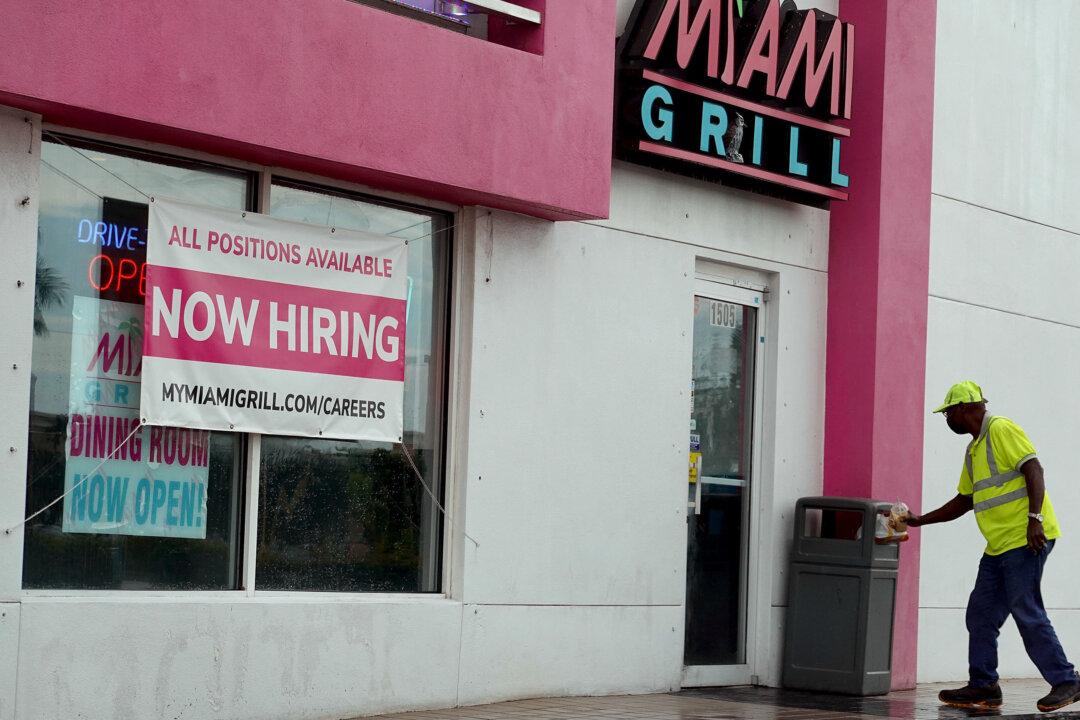Optimism among small-business owners edged down in October as firms faced inventory shortages and hiring difficulties forcing them to raise compensation at a historically high rate, according to the National Federation of Independent Business (NFIB).
The NFIB’s small-business optimism index fell by 0.9 of a percentage point to 98.2 in October, according to the group’s Nov.9 Small Business Economic Trends report (pdf).





